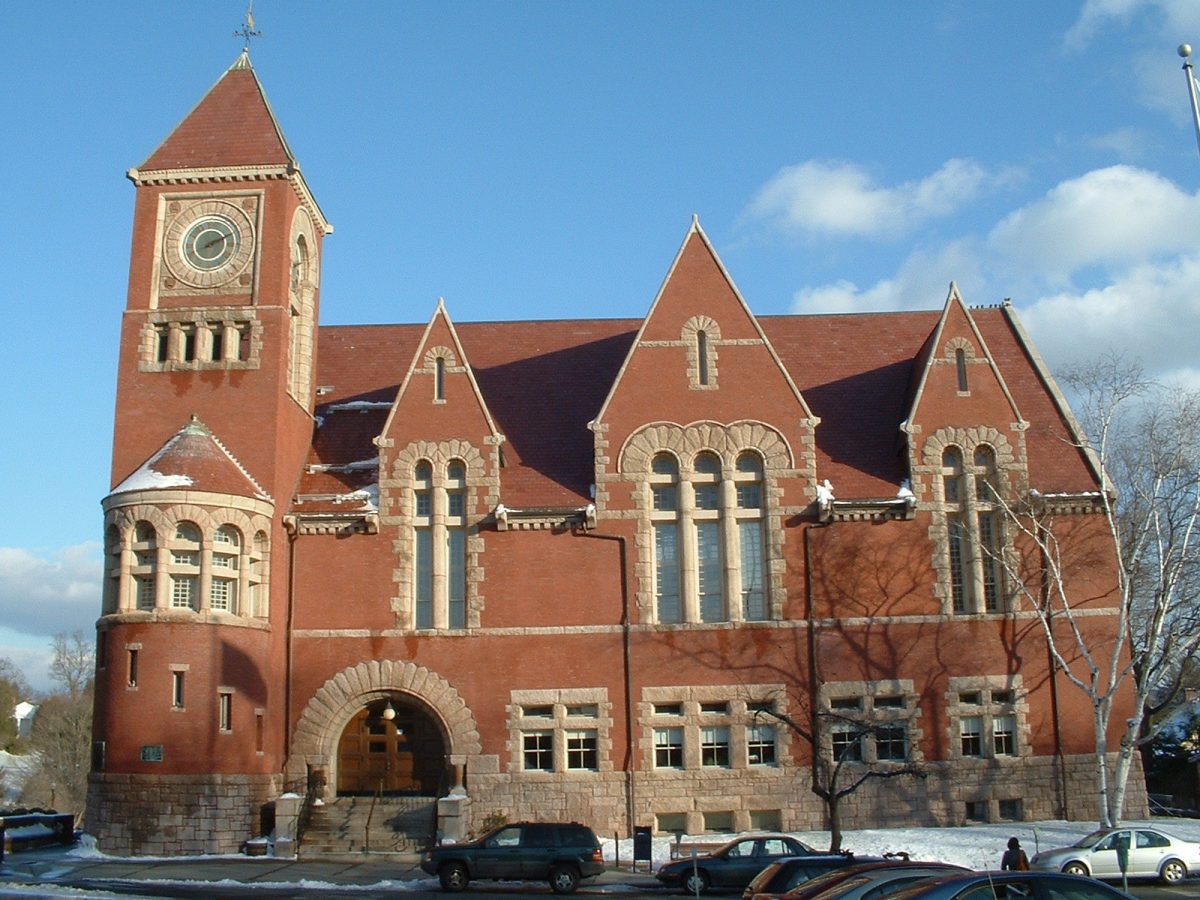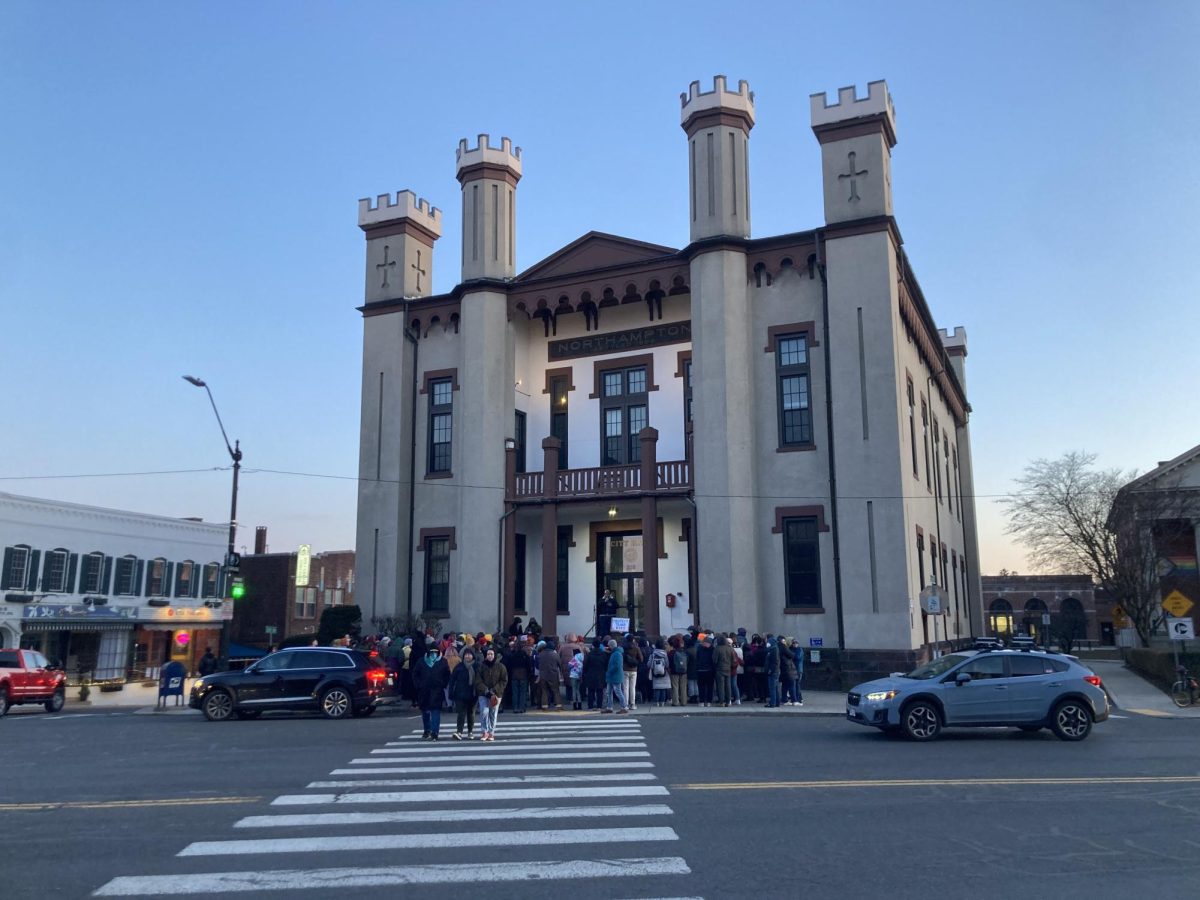Located just off of the University of Massachusetts campus, a newly constructed garden full of the sights and smells of freshly planted herbs and vegetables give visitors a chance to travel back to the age of the Renaissance.
“Very often people think of the Renaissance and they think of great painters or a great palace somewhere,” said Ellen Kosmer, a volunteer at the garden. “Obviously there were real people living and eating and working during this time and I think this can provide a glimpse into what real people were doing.”

According to Jennie Bergeron, a Mount Holyoke graduate, the garden located at the UMass Renaissance Center was a result of a research project advised by John Gerber, professor at the Stockbridge School of Agriculture during fall 2012.
“We really didn’t know what a garden during the Renaissance period looked like,” said Gerber. “So three UMass and three Mount Holyoke students hit the libraries and did the research. That’s where it came from.”
Bergeron added that she continued with the project in spring 2013. Stockbridge students grew the plants for the garden and then she took the responsibility of designing and planting those herbs and vegetables herself, resulting in a “kitchen garden” that pays homage to the typical 16th century common family.
“I’ve been gardening my whole life,” said Bergeron. “Both sides of my family, going back to great-grandparents, were farmers in the valley here.”
Bergeron added that there are currently 49 types of fruits and vegetables, most of which would be used by a 16th century family to make a pottage, which she described as a thin broth with an onion or garlic base and added herbs and vegetables.
“We really wouldn’t have such a vegetable garden if it weren’t for her work,” said Kosmer of Bergeron, who now serves as head gardener, leads tours of the sites and spends between six and eight hours a week maintaining and weeding the plants.
Kosmer added that she has also been impressed by the apple orchard, which she has watched steadily grow and develop from the beginning.
“Last year they were just single stalks with just a few leaves,” she said. Arthur Kinney, director of the Renaissance Center, added that hopefully in a couple years, they will actually be bearing fruit.
According to the news brief, UMass Extension Berry Specialist Sonia Schloemann was able to obtain small samples of original 16th and 17th century heirloom beer hops and strawberry cuttings from the USDA Germplasm Collection in Corvallis, Ore.
“It will take a couple of years but these small cuttings will be propagated by Stockbridge students in our greenhouses for use in the Renaissance Center gardens,” Gerber said in the brief. “It’s very exciting.”
Aaron Evan-Browning, a volunteer at the garden, is currently building a wattle fence around its perimeter. Aside from using basic modern supplies such as vertical rebar stakes, the fence is being structured exactly as it would have been during the Renaissance, a task which Evan-Browning says is, “a lot more work than I initially expected.”
A stone grotto is also currently being added to the garden which Kosmer said she hopes will serve as a “place of retreat.”
“You can sit on the benches in the grotto and look out at the vegetable garden, as some the townspeople have been doing,” Kinney said.
He has wanted to make the addition of a garden to the Renaissance Center a reality for the past 15 years and now that it’s open to the public, he has been pleased to see support from local visitors.
“The town has been pretty active about this,” he said. “They tend to come in anytime of the day and wander and look and since everything is labeled they really don’t need any help.”
Bergeron said that she only hopes these visitors can walk away from the garden learning something from our past.
“I see the plants telling such an awesome story about how people lived day to day,” she said. “I just encourage people to come here and get to know what’s around, many times, not just once. Plants can tell a lot about people.”
Jaclyn Bryson can be reached at [email protected].












